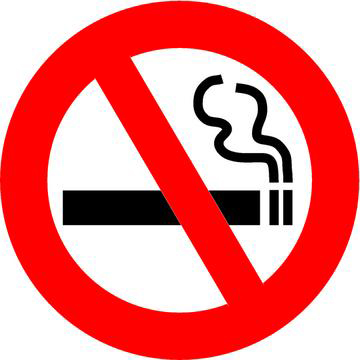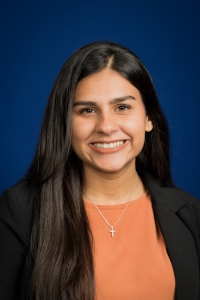Tobacco kills 1,300 people. Every. Single. Day.
Not if I can help it.
Despite increased research, education and outreach, tobacco is still the leading cause of preventable death in the United States. As a future healthcare provider, I cannot sit aside while tobacco impacts the health and wellness of millions of Americans.
And I have not sat aside. I have spent my time leading discussions about community health issues, working in on-ground activism, and training communities to make educated decisions about their health. I have been dedicated to giving back what tobacco takes: a choice. A choice to practice healthy behaviors. Americans are robbed of this choice because of the way tobacco markets to vulnerable populations.
It is not coincidental that there are ten times more tobacco advertisements in black neighborhoods than in white neighborhoods. It is not coincidental that there are ten times more tobacco retailers near schools in low-income communities. It is not coincidental that tobacco companies sponsor PRIDE festivals and that the LGBT community has a two times higher smoking rate than their straight peers. It is not coincidental that nine of ten African-American smokers smoke menthol cigarettes, which are proven to be more addicting and are harder to quit smoking than regular cigarettes. It is not a coincidence that Americans with lower levels of education and income have higher smoking rates than more educated, affluent Americans.
It is not coincidental. It is social injustice. It is health inequity.
Tobacco companies argue that these are “market priorities.” I argue that in a market with products killing 1,300 people each and every day, that this is health inequity. Cigarettes are products that, when used correctly, are designed to kill users. But, tobacco is not an equal opportunity killer.
Despite the decline in both adult and youth smoking rates, health inequities persist. To close this gap, I had the opportunity to partner with Truth Initiative, a national public health organization dedicated to tobacco prevention. I worked with them to develop strategies for authentic youth engagement. During my time as a fellow in the Youth Activism Fellowship, I spoke at local high schools about the effects of secondhand smoke. I engaged “market population” audiences during trainings about tobacco marketing strategies. I worked to educate Americans about the impact that tobacco has on smokers and their loved ones. By equipping them with the facts, people can make educated decisions about their behavior choices. Without this education, people are robbed of their choice to healthy living. Knowledge is power, so I spend my time educating Americans about tobacco to return this power to them. And I challenge every American to scrutinize the way products are marketed to them and take the extra time to understand the real impact of every choice they have—on themselves, their community, and beyond.
Prior to my established advocacy work, I had never seen tobacco through a social justice lens. I always viewed the tobacco epidemic as a healthcare provider fearing for the conditions of my future patients. From a preventive medicine standpoint, why treat a condition that is preventable right now? Yet, learning how tobacco advertising targets vulnerable populations, I felt it was my duty to empower underserved communities with knowledge to help them live their healthiest lives possible. My advocacy in my local community taught me the challenges of “on-the-ground” activism, but also how rewarding it can be to catalyze a change in a community and empower through education. I hope my work in my community empowers the next generation of activists to continue spreading messages of the possibilities of healthy living and share the connection between social justice and healthcare.
As long as I can help it, tobacco will have a real hard time hitting 1,300 every day.
Miranda Yousif is a member of the class of 2024 and hails from sunny Phoenix, Arizona. She is a proud Iraqi- American and first-generation college student who graduated from Arizona State University in 2020 with a Bachelor's degree in Biological Sciences. She is excited to attend her hometown institution, give back to the Phoenix community, and be an active member of the Arizona medical community.


